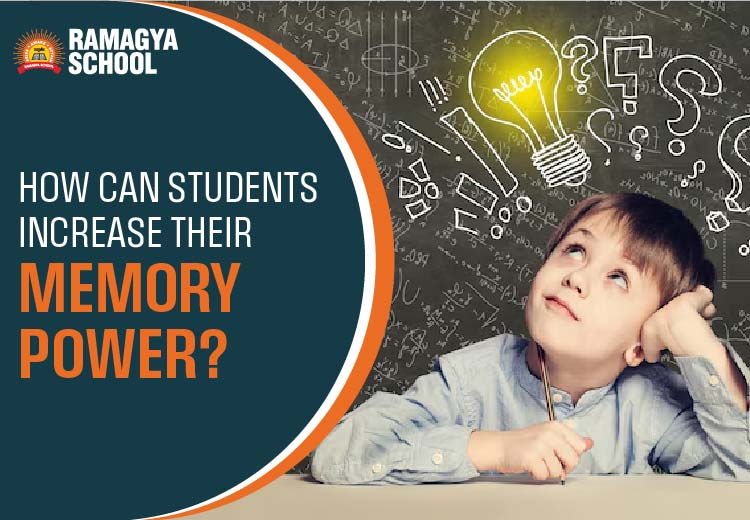Building Stronger Minds | Why Emotional Resilience Matters in School
Have you ever wondered why some students handle pressure well while others break down easily during exams or tough situations? The answer lies in something called emotional resilience – a skill just as important as reading or math.
In today’s fast and demanding world, children are facing more challenges than ever. From peer pressure to academic competition, they often feel stressed, confused, or anxious. That’s why schools must not just focus on marks, but also on building emotionally strong children.
Let’s explore why emotional resilience and emotional intelligence should be a key part of every school’s learning system.
What is Emotional Resilience?
It is important to stay calm and confident when things get tough. It helps kids deal with setbacks and failure, manage their emotions, bounce right back, and keep moving forward.
A child does not just inherit this trait. Like learning new subjects, emotional resilience can be developed and learned over time.
Why it Matters to Schools
Children learn to manage life in school, not just to study. Students who only focus on academics, and do not learn how to handle pressure, disappointment or fear may have difficulties later in life.
Why teaching emotional resilience at school is important:
- Builds Emotional Intelligence
Children are taught to respect and understand the feelings of other people, as well as their own. Emotional intelligence allows them to make more friends, communicate better and avoid stress or fights.
- Enhances focus and learning
Students who are emotionally balanced can better manage their time and concentrate on academics.
- Reduces Stress and Anxiety
Students who are taught to improve their mental health feel less afraid of failing and more confident about trying new things.
- Healthy Relationships Encouraged
Students learn to work together in teams, resolve conflicts peacefully and support each other.
How to improve mental health in schools
- Enjoy some relaxation and mindfulness time
Five minutes of deep breathing, stretching or quiet time during the day can make all the difference. These moments can help students relax, especially prior to exams or after a long period of studying.
- Example: Before the start of classes or after recess, teachers can guide students through simple breathing exercises.
This can help reduce stress and make the mind more focused.
- Create a safe space to share feelings
When they’re sad, worried or upset, many children keep quiet. They should be able to confide in someone at school, such as a counselor, a friend teacher or a “feelings area” where they are free to express themselves.
- Example: Weekly one-on-one check-ins or group circles where students talk about how they feel.
Students will feel more heard and build emotional trust.
- Mental Wellness Training for Teachers
Students spend a lot of time with their teachers. Teachers who are trained to identify early signs of anxiety, stress or emotional problems can provide timely support or alert the school counselor.
- Example: Workshops or short courses for teachers on how to support students emotionally and how to respond kindly when a child is struggling.
- Add Emotional learning to the Curriculum
Math and science are essential, but also lessons in managing emotions, being kind and solving problems peacefully. You can teach short stories or classes on emotional health.
These classes may cover topics like:
- “What to do when I feel angry?”
- “How to cheer myself up after failure?”
- “What are some tips for being a good friend during hard times?”
Such activities increase emotional intelligence and make students stronger from within.
- Reduce pressure and encourage healthy competition
A child’s mental well-being can be damaged by excessive pressure to achieve high grades. Not just grades, but effort, creativity and honesty should be praised in schools.
- Example: Celebrate small wins like improvement in behavior, helpfulness in class, or teamwork–not just top ranks.
It builds self-esteem and confidence.
- Parents should be involved in the process
Parents need to understand how they can support their child’s mental health. Parents can attend sessions at schools on topics such as managing screen time, encouraging family discussions, and helping children to overcome failure.
- Example: Parent-teacher meetings that include emotional development discussions.
Support will be given to the kids at home and school.
Role of Mental Health Programs in Schools
Many progressive schools have started including mental health programs into their curriculum. These programs help students:
- Recognize their emotions
- Handle stress in healthy ways
- Respect different feelings and views
- Ask for help when needed
- Stay strong and motivated
These mental health programs can reduce bullying in schools, improve academic performance, and help students become kind, strong and confident individuals.
Why CBSE Board school in Dadri should include these programs
In Dadri, many schools are realizing that life skills should be taught alongside academics. Students who are emotionally resilient will succeed in both school and in life.
Parents searching for CBSE board schools in Dadri can also check if the school is focused on emotional wellbeing. Students are best prepared for life in a school that offers mental health programs, supports emotional learning and teaches students how to improve their mental health.
The heart and mind are equally important to a good CBSE board school in Dadri.
Ramagya Board School, Dadri – A CBSE Board school that builds strong minds
Ramagya School in Dadri is a CBSE board school that believes education is more than just books. It’s about developing strong, kind and emotionally healthy children. The school has well-planned mental health programs, trained counselors, and mindfulness activities for students.
Children are taught emotional literacy through practical experience and regular sessions. They provide mental health programs in schools. Teachers are taught to recognize emotional struggles and to help students develop healthy ways of dealing with them. Ramagya School is a CBSE board school that focuses on improving mental health.
Final Thoughts
Strong minds are built in safe and supportive environments. Being emotionally strong is a necessity, not a luxury. Every child deserves to learn how to improve mental health, grow their emotional intelligence, and receive care through well-designed mental health programs in schools.
If you’re looking for a CBSE board school in Dadri that prepares your child not just for exams but also for life–choose one that puts emotional resilience first. Because strong minds make strong futures.




